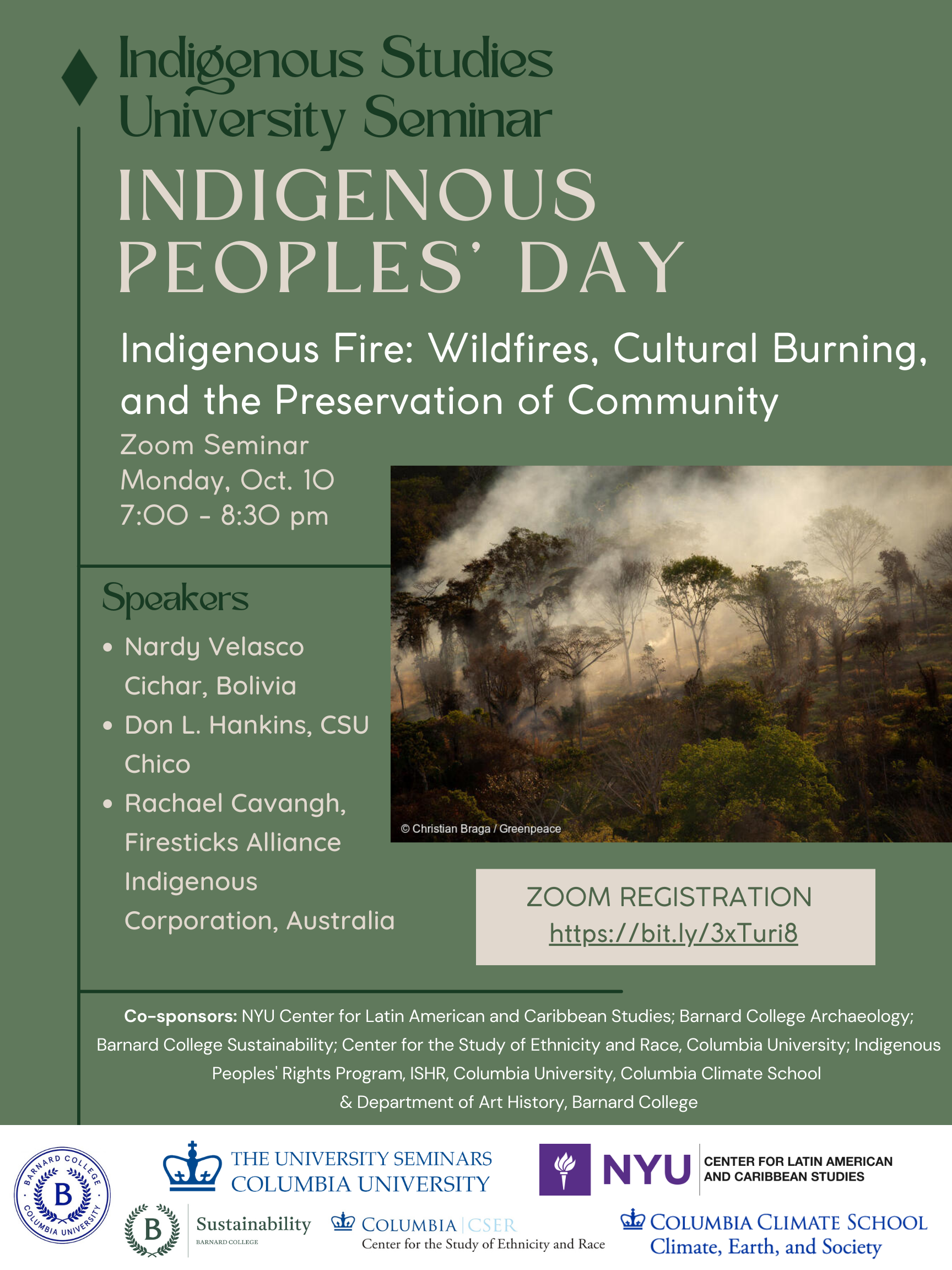
Indigenous Peoples’ Day 2022: 10 October
by Elsa Stamatopoulou*
Monday, October 3, 2022
We are very glad that Columbia now celebrates Indigenous Peoples’ Day. The University has followed the appeal of Native American students and numerous other students, faculty and staff over the years asking for this Day to be honored. The celebration of the Day is a clear trend among various other universities as well as cities and states in this country. We note that this year Indigenous Peoples’ Day is marked by various events around campus, a positive development indeed.
History of the Day
Efforts to rename Columbus Day go back to 1977, when the historic Conference of Indigenous Peoples of the Western Hemisphere was held at the United Nations in Geneva. Indigenous leaders had gathered for the International Conference against Racial Discrimination. The conference recommended to replace Columbus Day and to mark Indigenous Peoples’ Day to express international solidarity with the Indigenous Peoples of the Americas. Observing Indigenous Peoples’ Day is an important step in dismantling the “Doctrine of Discovery” that has plagued the US and other legal systems.
Thanks to the advocacy of the global Indigenous Peoples’ movement, the International Day of the World's Indigenous Peoples is marked annually on 9 August. The date was selected to honor 9 August 1982, the first day of the very first UN human rights body established to deal with Indigenous Peoples rights, i.e. the UN Working Group on Indigenous Populations. This Working Group worked tirelessly with the Indigenous Peoples' movement and laid down the groundwork for the adoption of the UN Declaration on the Rights of Indigenous Peoples on September 13th, 2007.
This year’s events at Columbia University
We have been informed of a number of events at Columbia at the time of writing of this text and we provide links for information and registration. These events are the result of initiatives of the Mailman School of Public Health (https://www.humanrightscolumbia.org/events/lenapehoking-indigenous-epist...), of Barnard College (https://www.humanrightscolumbia.org/events/indigenous-peoples-day-event AND https://www.humanrightscolumbia.org/events/indigenous-archaeology) and of the University Seminar on Indigenous Studies (https://www.humanrightscolumbia.org/events/indigenous-fire-wildfires-cul...), cosponsored by various other entities. In addition, a few days after Indigenous Peoples’ Day, on October 17th, a special talk on “Advocating for Indigenous Children’s Rights Using Indigenous Models” will be given by Greenland’s National Spokesperson for Children’s Rights, Aviâja Egede Lynge (https://www.humanrightscolumbia.org/events/advocating-indigenous-childre...).
These events demonstrate the rising engagement of Columbia’s academic community with Indigenous Peoples’ issues. Of course, there are various actions Columbia can take in order to improve its work on Indigenous issues, and last year we published a list of other actions, inspired by the work of other universities (https://cser.columbia.edu/news/indigenous-peoples-day-2021-what-can-colu...).
*The author is Director of the Indigenous Peoples’ Rights Program, Institute for the Study of Human Rights





